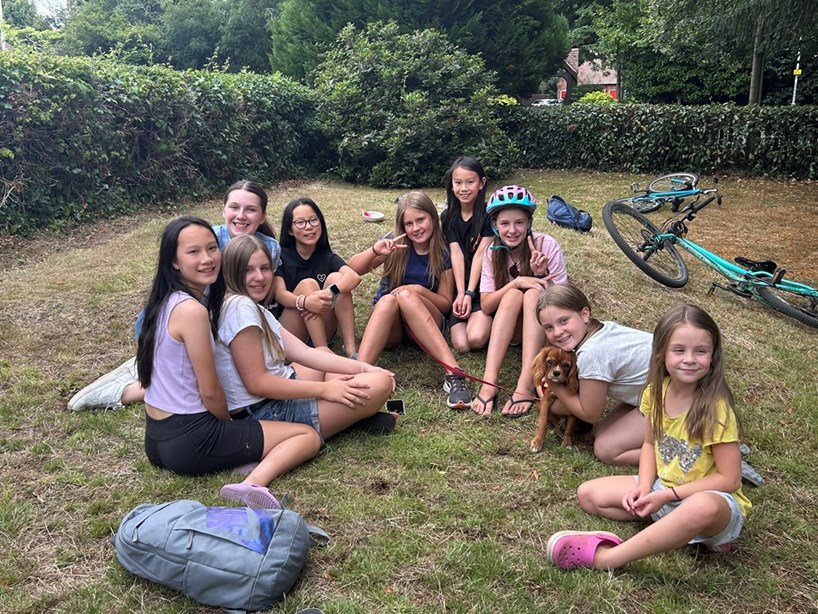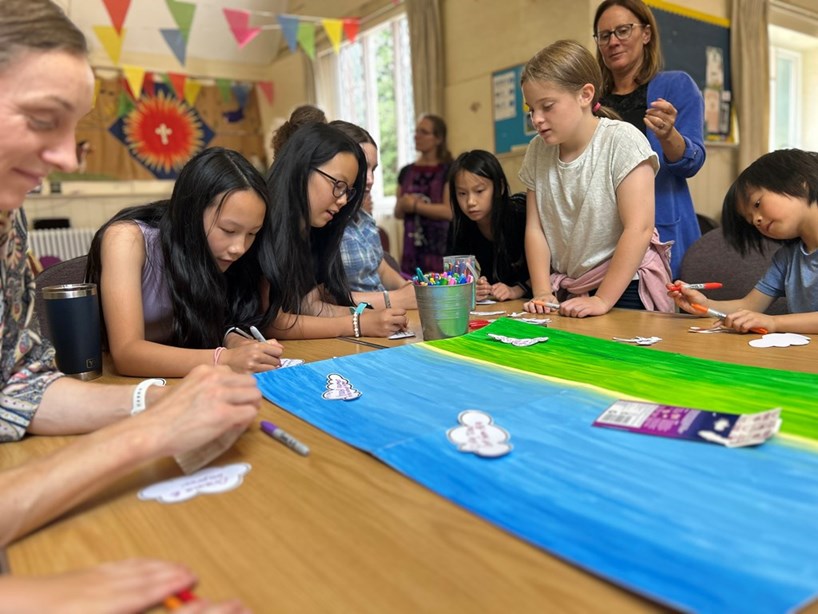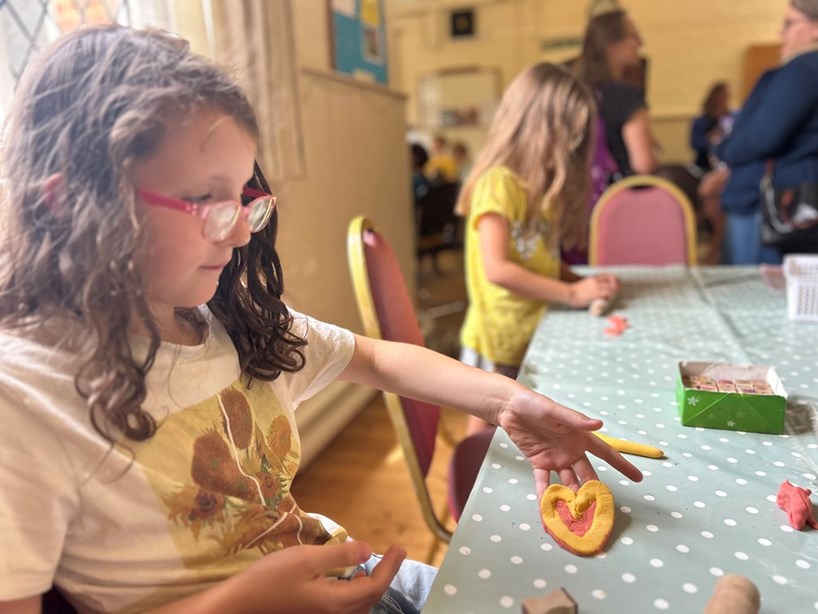I NEVER thought that I would be one of them — you know, the “home-educating family”. The kind of parent who turns up at the park with their children on a Tuesday morning, or in the supermarket when everyone else is in school uniform. The one who gets asked, “Yes, but what about socialisation?”
Eight years on, my wife, Kayi, and I find ourselves deep into this journey — and discovering that it is shaping not only our children, but our faith, our ministry, and our vision for the Church.
Once spoken about in hushed tones, home education — or “home-ed” — is no longer rare. Since Covid, and with growing concerns around provision for special educational needs and disabilities (SEND), mental health, and curriculum fit, more families are choosing a different way to educate. As of autumn 2024, official records show that more than 111,000 children in England were recorded as electively home-educated, and more than 153,000 had been at some point that year. This is no longer fringe: it’s becoming a new normal for many.
 Members of the home-ed hub at St John’s, Woodley, Berkshire
Members of the home-ed hub at St John’s, Woodley, Berkshire
The reasons for home education are as varied as the families themselves. Some are drawn by vision: flexibility, curiosity-led learning, more time together. Others are responding to need: anxiety, undiagnosed SEND, or simply that school wasn’t working. But what unites them is a desire to help their children flourish — which leads me to ask: what is the Church’s response?
When I began my ministry at St John’s, Woodley, in Berkshire — a vibrant and welcoming parish church — I noticed more and more home-educating families on the edge of church life. They weren’t disengaged: they just weren’t expected.
As a priest, I believe in the care of souls — not just the ones on pews or registers: all souls — including those who learn outside the school system, who parent without networks, who wonder if there’s space in the Church for their story.
Home-educating families are not necessarily isolated. A great deal of home-ed happens in community — through co-ops, Facebook groups, forest schools, and shared lessons. There is a rich ecosystem of mutual support out there. But what is often missing is a spiritual home: a communal safe space with warmth, stability, and spiritual anchoring. So, we opened our church hall. Nothing fancy: just tea, space, a few activities, and time.
And into that space came children of all ages — reading, painting, building, discussing. It’s a joy to watch them play and learn together, older ones helping younger, and children collaborating across ages in a way that’s delightfully natural. Parents connect, encourage one another, and, occasionally, pause to pray. There’s a quiet depth to it all.
 Members of the home-ed hub at St John’s, Woodley, Berkshire, get creative
Members of the home-ed hub at St John’s, Woodley, Berkshire, get creative
And this is as much a ministry to parents as to children. Home education has a cost. Often, one parent has to stop working. The financial burden is real: curriculum, materials, trips all paid out of pocket. And the emotional toll is just as real. Many parents come tired, drained, wondering if they’re doing enough. To say, “You are not alone,” is not just kind: it is priestly.
Some of these same children have come along to our “Friday Lunch Munch”: a meal that had quietly become a regular for older people. They take orders, pour drinks, serve meals. There’s laughter, warmth, unexpected friendship. And I can’t help but think: doesn’t this mirror real life more accurately than sitting in a room with 30 others your exact age, all doing the same thing?
What if this reimagining went further? What if youth workers were trained to expect and engage home-educating families? What if we offered midweek daytime groups for young people whose schedules don’t follow school timetables? What if we stopped accommodating this community and started intentionally including them?
Theme parks, museums, and activity centres have been offering discounts and dedicated access for home-ed families for years. They’ve adapted. They’ve welcomed. The Church is behind the curve: we should be leading it.
 Members of the home-ed hub at St John’s, Woodley, Berkshire, get creative
Members of the home-ed hub at St John’s, Woodley, Berkshire, get creative
Let me be clear: we love our schools. I serve as a school governor, and Kayi is a part-time teacher. We are proud of our Church of England schools and the deep formation they offer. This isn’t about taking sides: it’s about recognising that education must reflect our society’s growing diversity. It’s not either/or: it’s both/and. The Church should be present wherever children grow.
We’re just getting started. We’ve applied for a Development Fund grant from the diocese of Oxford in the hope that this little hub might grow into a model for others, or at least an inspiration. The plan is to run consistently for six months, and then produce a practical resource to help other churches to understand and engage with the home-ed community — because this isn’t a side project: it’s a fresh pastoral calling.
So, here’s the vision: What if churches across the country became known as “home-ed-friendly”? What if we didn’t just pray for children returning to school each September, but for all learners — wherever and however they grow? What if our language and liturgies said: “You belong here, too”?
The Church of England was once on the cutting edge of education, founding schools, raising literacy, bringing opportunity. What if we found that voice again? Not to systematise, but to shepherd. Not to dictate, but to welcome. Home-educating families are not asking for special treatment. They’re asking to be seen.
And when we see them — not as anomalies, but as a blessing — we find something holy. Because, maybe, the Church’s future is not in programmes or policies but in the quiet, faithful rhythm of parents and children gathered around a table, discovering that grace, like learning, rarely sticks to a timetable.
The Revd Mark Nam is Vicar of St John the Evangelist, Woodley, Oxford.















